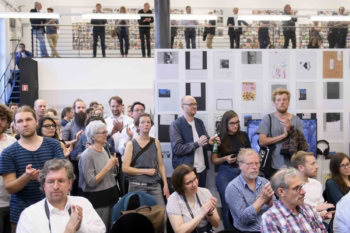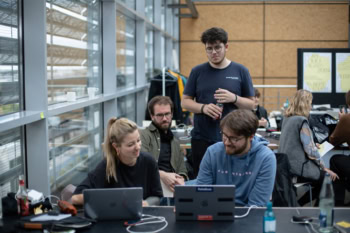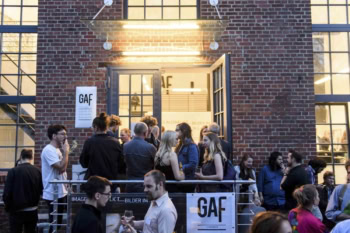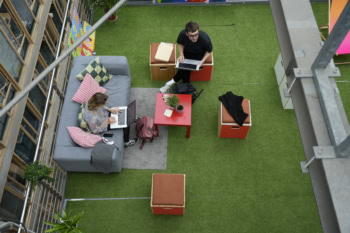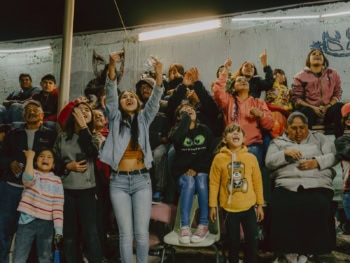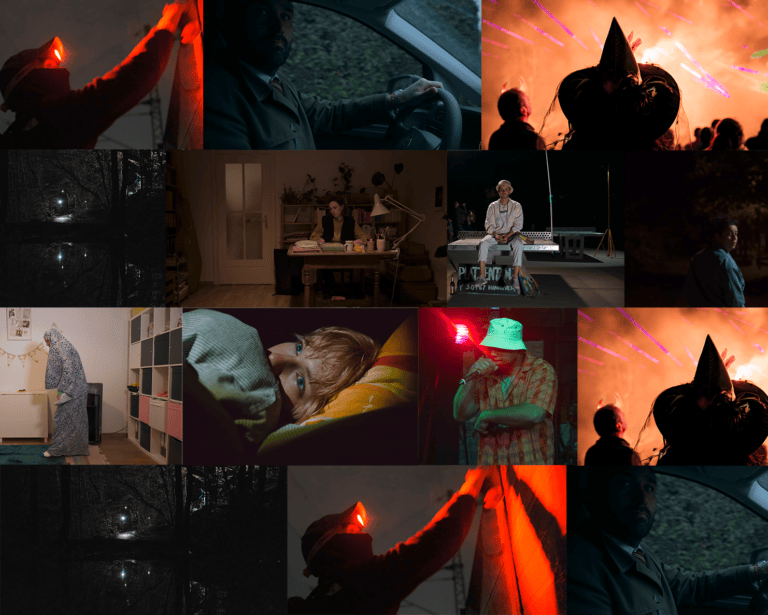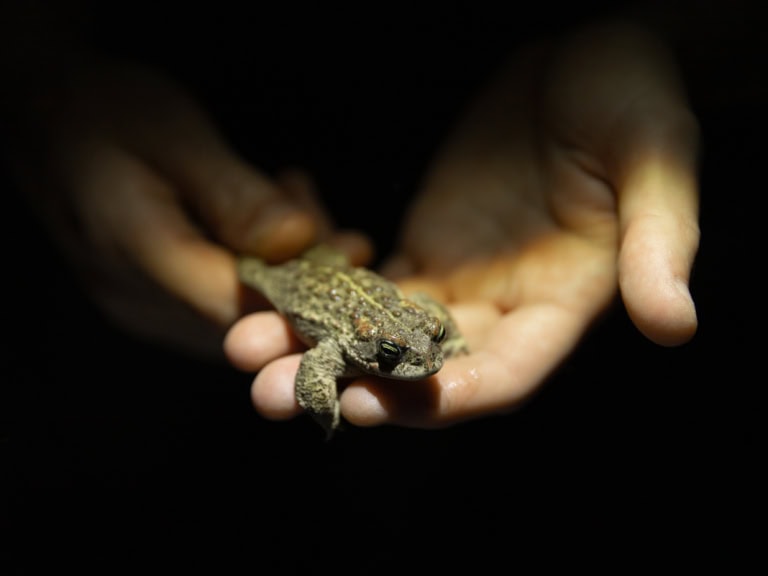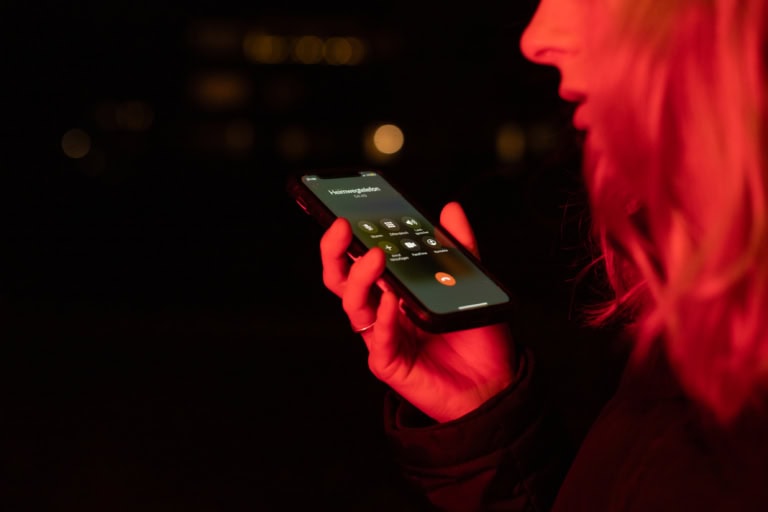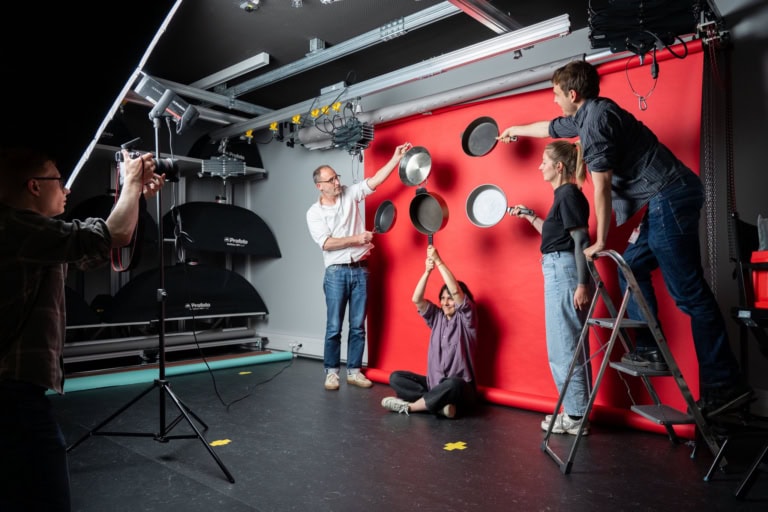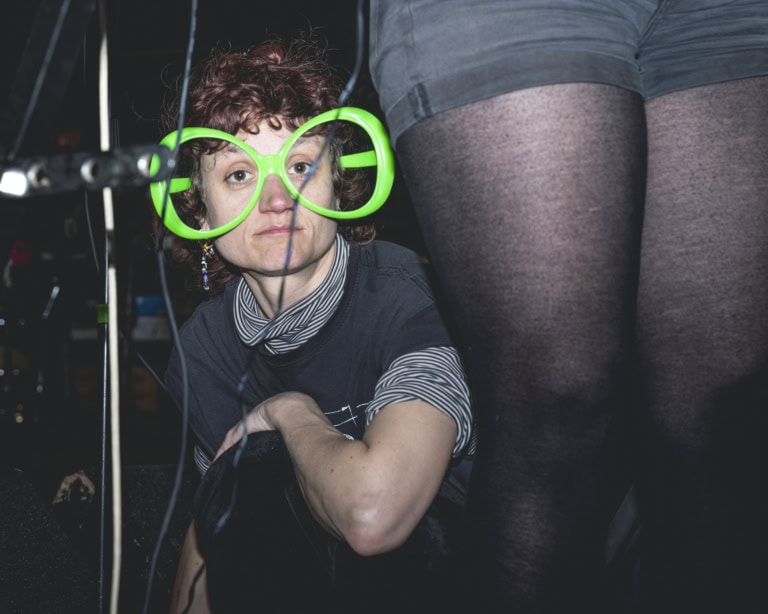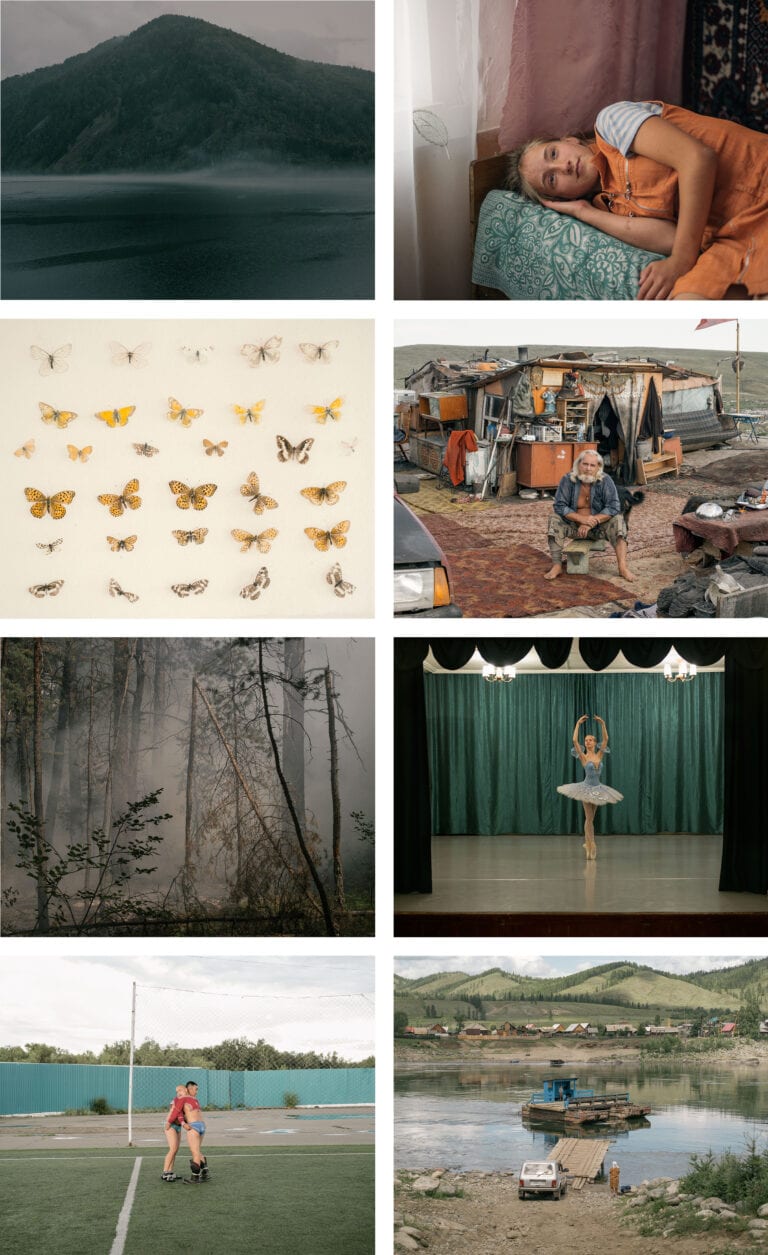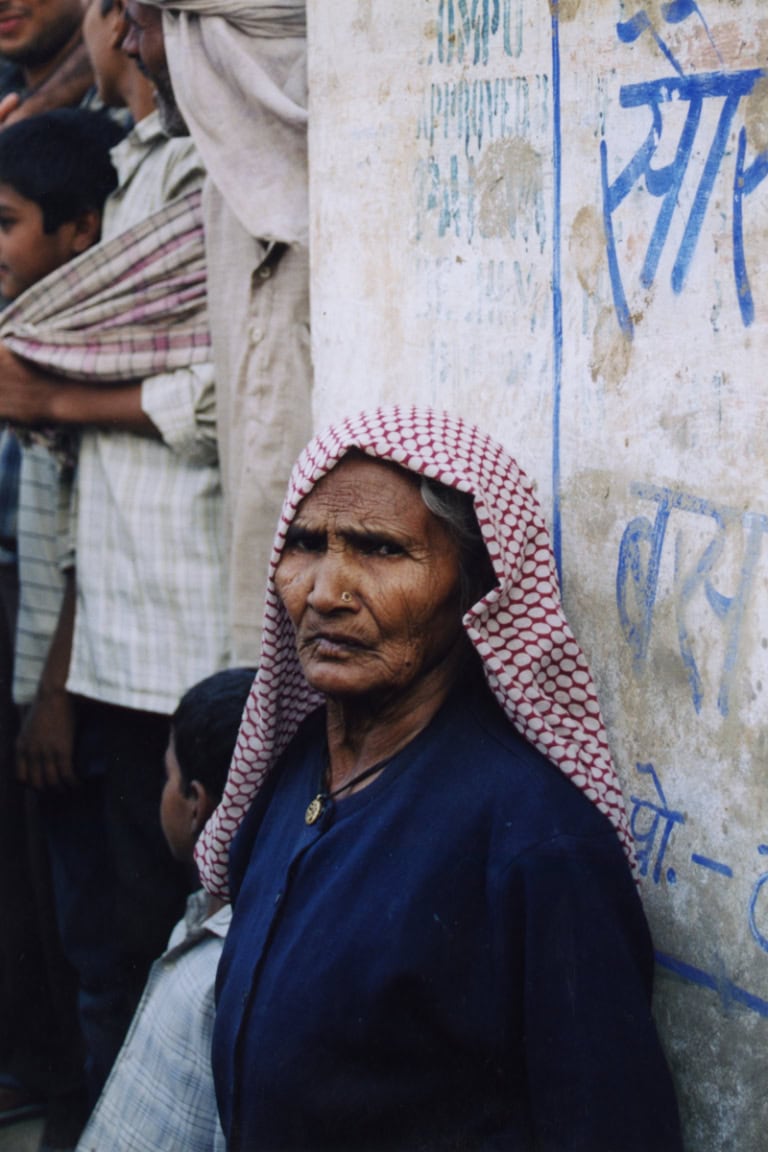Ten reasons to study Visual Journalism and Documentary Photography.
Learn more in our free portfolio reviews.
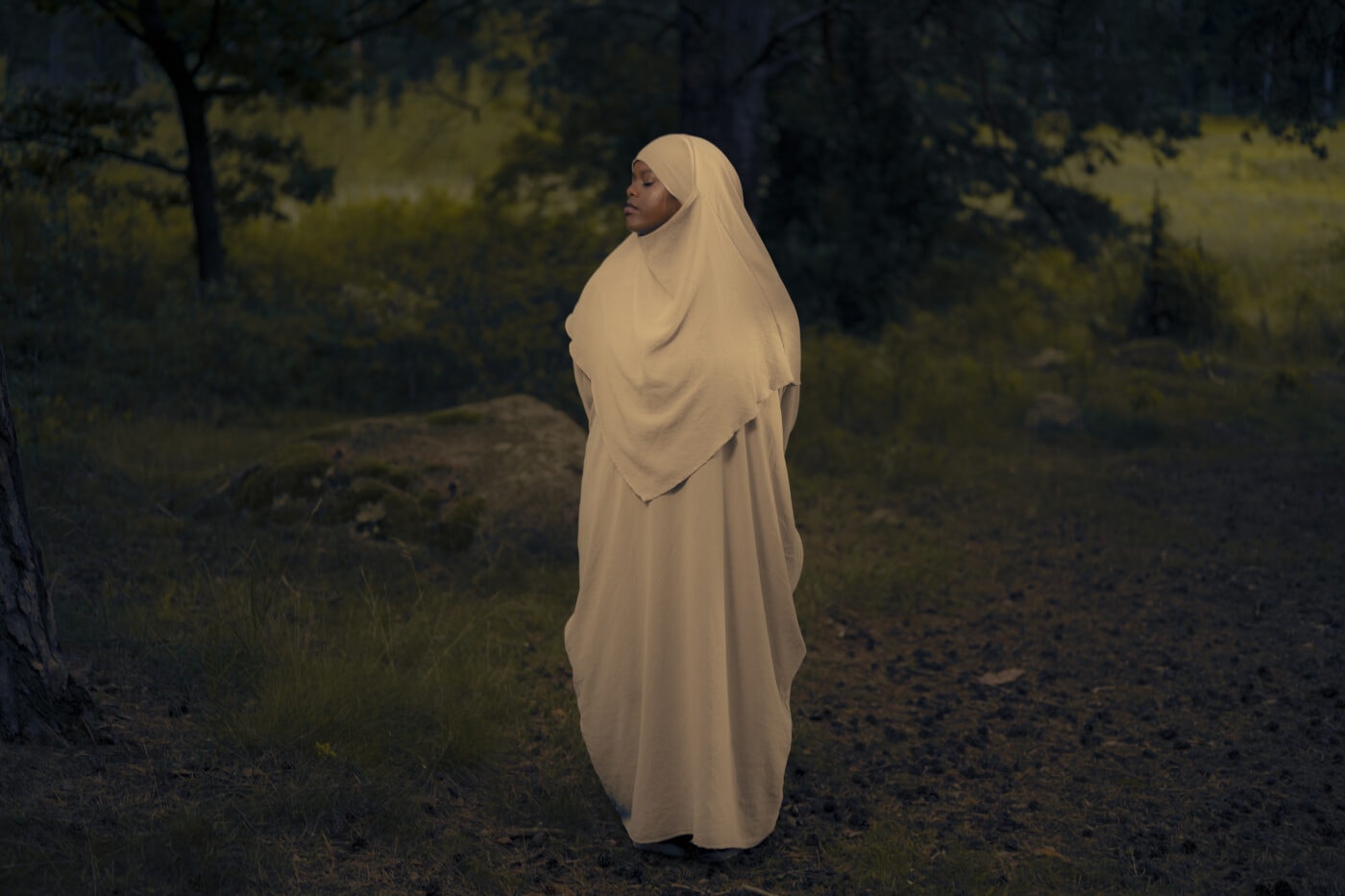 Part of the portrait serie emacipatory or feminist
Part of the portrait serie emacipatory or feminist
If you have a passion for photography and visual storytelling, a degree in Visual Journalism and Documentary Photography at Hannover University of Applied Sciences and Arts is just right for you. If you have already made your decision, you can find some good tips for your application here. We also recommend coming to one of our free portfolio consultations. Still wavering? Then here are ten very good reasons why you should study with us in Hanover:
1. Focus on journalistic and documentary storytelling
The course has a unique focus in Germany on journalistic photography, multimedia and visual storytelling. This sets us apart from other photography degree programs. This is how graduate Amelie Sachs remembers itwho studied photo design in Munich before studying in Hanover: “I quickly realized that the course in Munich was too broad-based for me. It was then clear to me that I was mainly interested in photojournalism.” The course in Hanover was therefore just right for her. For student Hannah Aders, the journalistic focus is also a special feature of Hannover University of Applied Sciences and Arts. She remembers: “That was the only option for me at the time, because of the focus on classic documentary photography. Bielefeld and Essen were too artistic for me.”
Since 2000, our degree course, formerly known as “Photojournalism and Documentary Photography”, has built up an outstanding reputation. Our lecturers and staff all have many years of professional experience in visual journalism and know the industry very well internationally. They offer you professional advice and support in all phases of your studies. Through our connections to media companies and trade journals, our students have the opportunity to make important contacts for their professional future. For Elke Latinović, Head of Crossmedia at ZEIT Sprachen, the Visual Journalism and Documentary Photography course also stands for an open exchange. She concludes: “All students find their way here.”
Short film by Kim Zeidler, Finn Winkler and Utkarsh Singh
2. Professional training and further education at the highest level
Do you already have training in photography or as a media designer? Great, then you can build on this perfectly with our degree program. Just as we are open to inexperienced young talent, we also welcome people who have been working with media for years. Graduate China Hopson, for example, had already trained as a portrait photographer before graduating. When she thinks back to her time as a student, she concludes: “I also learned a lot of things that I didn’t learn during my training. I learned a lot from my fellow students and was given a toolbox with which I can now develop freely as a photographer.” The special thing about us is that you learn more than just the technical approach to photography and film. During your studies, you will practise numerous research tools and storytelling techniques. You think about media ethics and the appropriate representation of topics, as well as visual language and image editing. Our diverse approach is important because the media world is constantly changing. We will prepare you to find your way around it in the future.
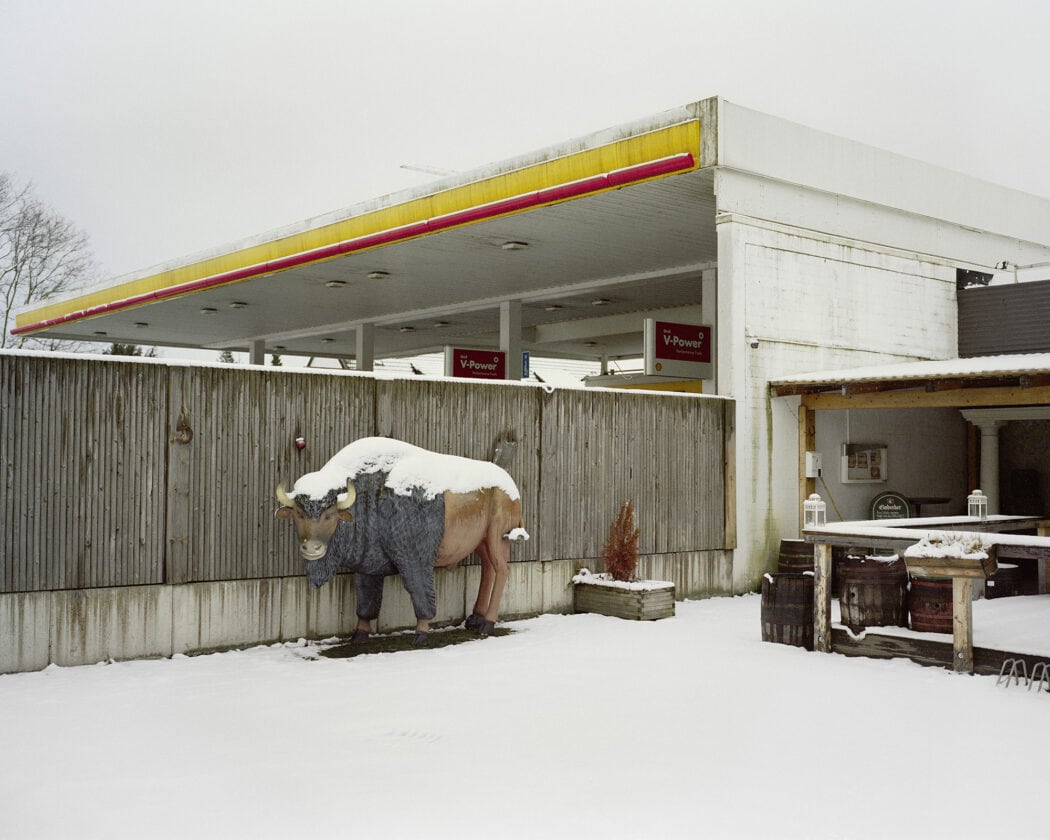 Foto: Minoo Hassanzadeh
Foto: Minoo Hassanzadeh
3. Financial support and individual promotion
Our degree program offers students unique funding opportunities. Students at Hannover University of Applied Sciences and Arts regularly have the opportunity to apply for the “WIR/Deutschland STIPENDIUM” and the “Landesstipendium Niedersachsen”. In addition, Hannover University of Applied Sciences and Arts also offers a special program for the best students. Of course, our teachers are always happy to help you apply for these scholarships!
Each year, a high-caliber jury consisting of picture editors from SPIEGEL, Stern, GEO and ZEIT, among others, also comes together. This jury selects some of the most impressive works from the course for the VGH Photo Prize. The winning work is honored with prize money of 10,000 euros and exhibited together with the next best work. The VGH Photo Prize is one of the most highly endowed awards for photojournalism in Germany.
Another special feature of our course is the close collaboration with the TruePicture mentoring program. TruePicture is a support project for young and committed photojournalists from Germany, Austria and Switzerland. With CHF 15,000 (approx. 15,827 euros) and the associated coaching, it is a great opportunity to realize a long-term project. As a rule, a nomination committee makes a pre-selection for participation and a second jury selects three winners. As a cooperation partner of this mentoring program, we have a special contingent of nominations. In the past, numerous current and former students have been supported in this way.
4. Successful graduates
Our students regularly win prizes. In the past, these have included several World Press Photo Awards, several Leica Oscar Barnack Awards and the Inge Morath Award. Our graduates work in numerous different functions for leading media houses such as ZEIT, Der Spiegel, FAZ, National Geographic and the New York Times. Some of our graduates become freelance photojournalists, while others go on to work in photo editorial offices. But numerous other career paths, for example in PR and NGO public relations, are also easily possible.
The fact that graduates of Hannover University of Applied Sciences and Arts are now represented in almost all major media companies means that our degree program has an extremely valuable alumni network. Students and graduates regularly exchange ideas with each other, share job inquiries or give research tips. This large network is extremely helpful if you want to submit a story to a magazine, exchange information about commission fees or look for local contacts for research abroad.
If you would like to find out more about the professional careers of our graduates, you can find four interviews with our alumni Jonas Wresch, Frank Schinski, China Hopson and Maria Feck here.
Jonas Wresch completed his Bachelor’s degree in 2015. He then received the coveted Stern Scholarship. Since then he has worked for magazines and newspapers worldwide. He portrayed rebels in the jungles of Colombia for Die Zeit and accompanied sea rescuers on their missions in the North Sea for GEO.
China Hopson studied at Hanover University of Applied Sciences and Arts until 2019 and spent a semester abroad in Birmingham. Since then, she has worked for numerous clients such as ZEIT, Greenpeace Magazine, Vogue Germany and Süddeutsche Zeitung. She is also involved in the Female Photoclub and heads the Hanover chapter.
Frank Schinski graduated from Hanover University of Applied Sciences and Arts in 2006. Just three years later, he became a member of the renowned Ostkreuz photography agency. In his works, he describes everyday and yet very special situations.
Maria Feck studied communication design in Hamburg and photojournalism in Hanover and Aarhus. She has won the n-ost-Reportagepreis, the Hansel-Mieth-Preis/digital and has been sponsored several times by the VG Bildkunst.
5. We think journalism digitally
In 2022, we realigned our degree program to keep pace with the changes in the digital media landscape. This is achieved in particular through the integration of new technologies such as data visualization and virtual reality. We offer innovative courses such as “Digital Storytelling” and “Immersive Journalism”, which are tailored to current developments in journalism. This will prepare you optimally for a career in this constantly changing industry. In the past, students at Hanover University of Applied Sciences and Arts have themselves played a major role in shaping and influencing the modernization of journalism. Dr. Jens Radü, Head of Service at SPIEGEL.de, recalls: “Almost a decade ago, we produced the first visual stories with students from Hanover in the multimedia department, which then received a lot of attention and won many journalism awards.”
Learn more about the new orientation of the degree program in an article by Deutschlandfunk from January 31, 2023:
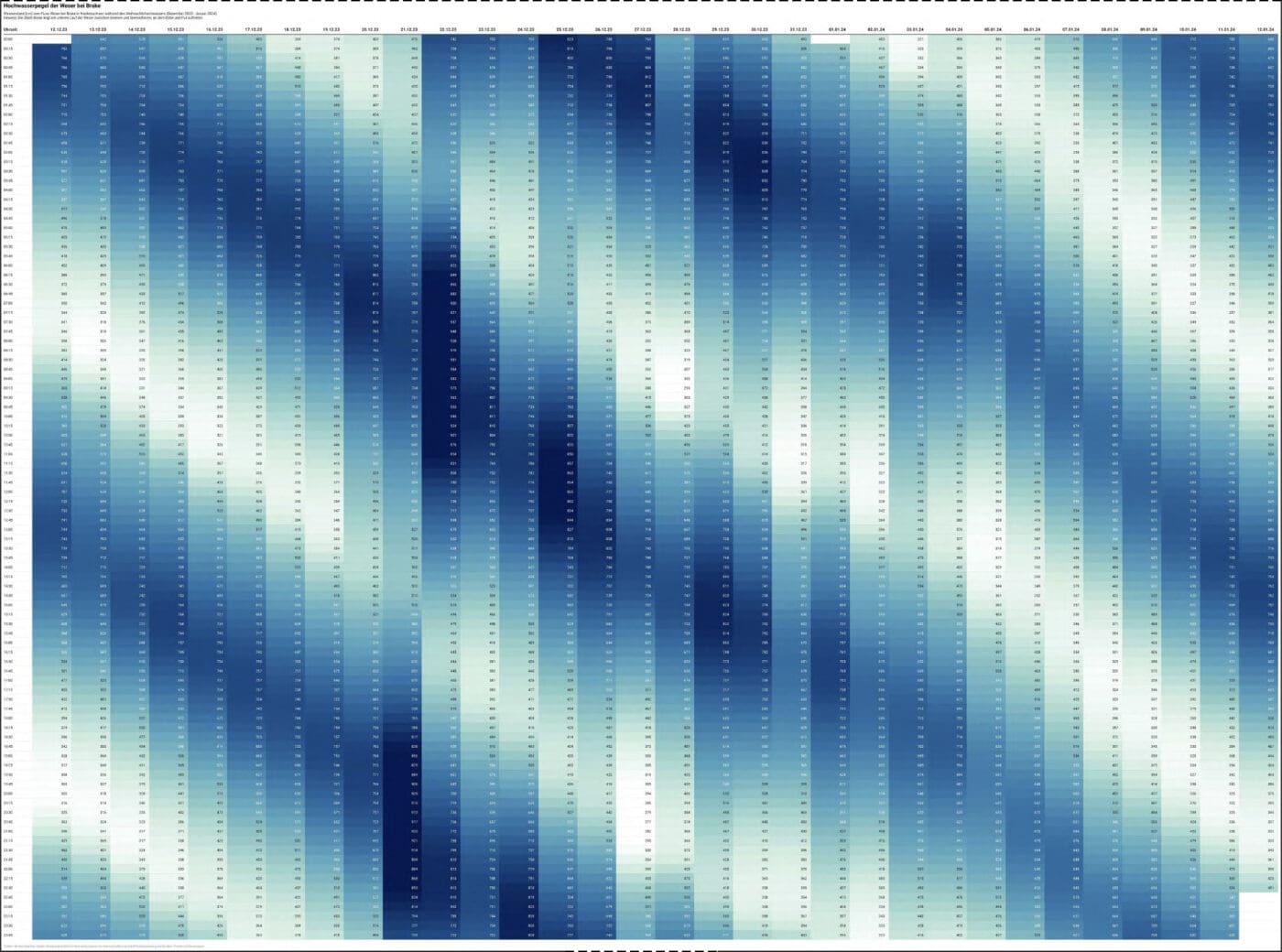 "High water level of the Weser near Brake, December 2023- January 24", data visualization by Michael Matthey
"High water level of the Weser near Brake, December 2023- January 24", data visualization by Michael Matthey
6. Family atmosphere
With only 35 students per semester, our course offers a familiar learning environment. This enables intensive feedback and personal support. You have the freedom to develop and implement your own projects. You will have access to state-of-the-art equipment and software, as well as studio, printing and editing rooms. This allows you to try out many different approaches and find out what works best for you. The special thing about this is, of course, that you will be supported by a large network alongside our lecturers. Because the exchange and cohesion between students plays a major role for us. Freelance photographer Daniel Chatard remembers the solidarity of his fellow students in Hanover: “Even if you were stuck with something – someone could always explain it to you”,
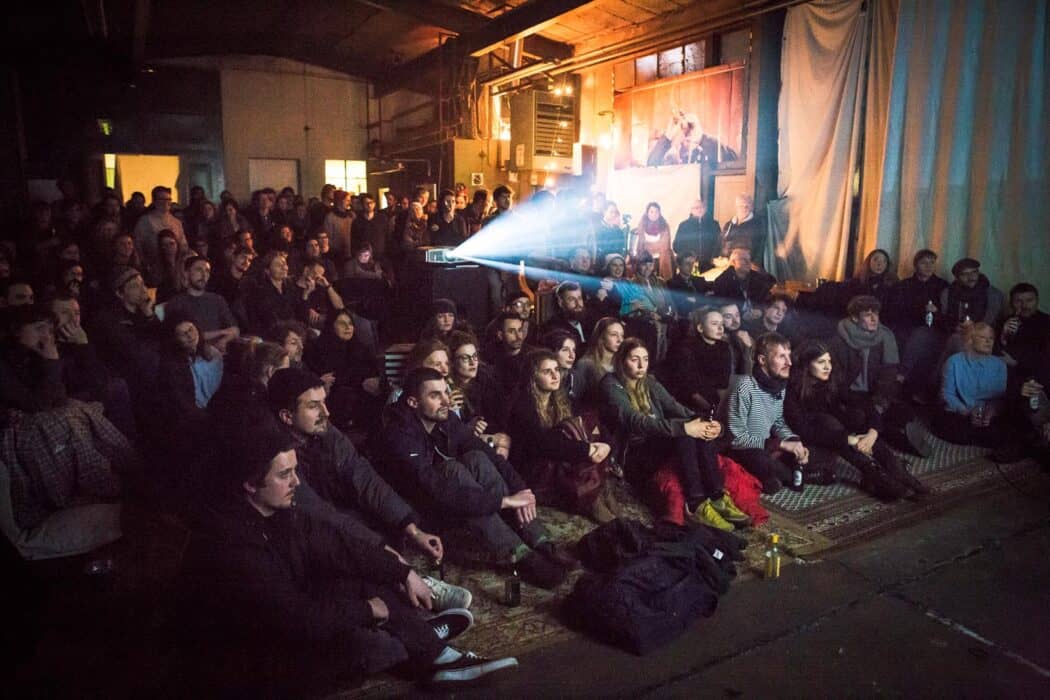 Screening of student projects in the "Goethe Exil". Photo: Rafael Heygster
Screening of student projects in the "Goethe Exil". Photo: Rafael Heygster
7. Practice, practice, practice
In the “Educational Newsroom“, our students can produce a digital magazine in a practical environment. On the one hand, this prepares them for everyday editorial work, and on the other, it gives their work greater visibility. At the same time, a six-month mandatory internship is also part of your studies with us. Depending on your interests, you can do this as a photojournalist, photo editor, in video production companies or in a museum, for example. For example, there are permanent internship partnerships with the Frankfurter Allgemeine Zeitung and the Leipziger Volkszeitung. You will work there for six months as a daily newspaper photographer and learn how to work quickly and professionally.
There is also a long-standing research cooperation with the Reutlingen Reportage School, where you can work together with journalism students for two weeks on a major story. In the past, the results of this collaboration have been printed in ZEITmagazin, Süddeutsche Zeitung and Stern, among others.
This practical orientation ensures that many of our students are already working for renowned media companies during their studies. Henner Flohr, head of the FAZ picture editorial department, confirms: “The students from Hanover are very serious about journalistic photography and have received a high level of practical training.”
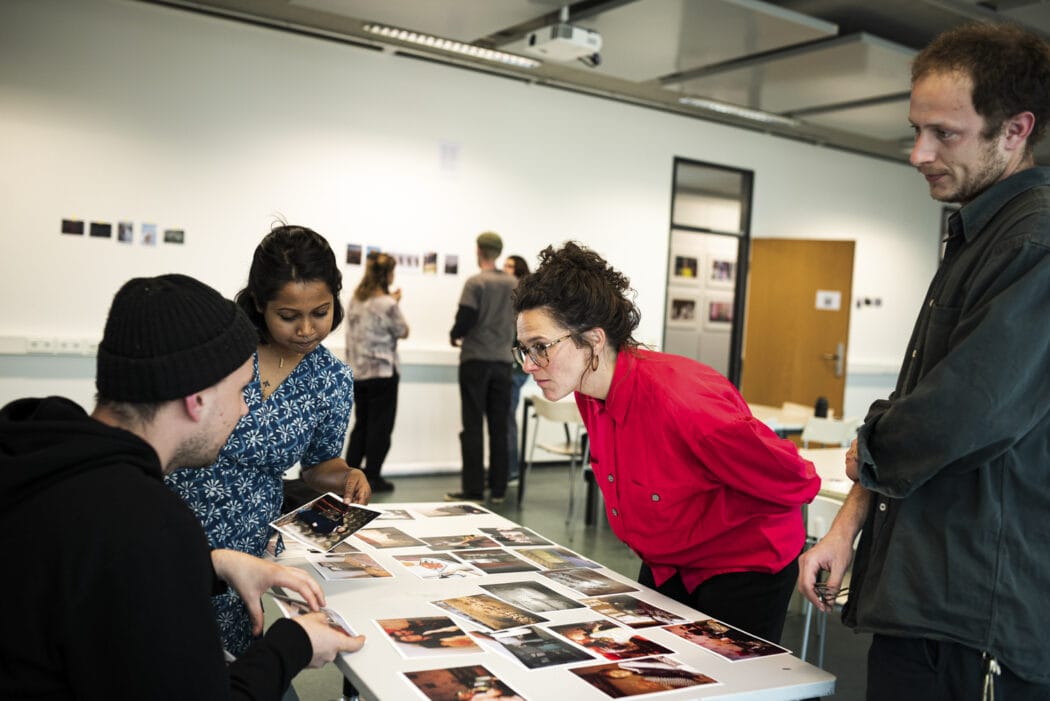 MAGNUM photographer Bieke Depoorter with participants of the International Class in the summer semester of 2023. Photo: Kristina Kaysen
MAGNUM photographer Bieke Depoorter with participants of the International Class in the summer semester of 2023. Photo: Kristina Kaysen
8. Internationality and language skills
Our seminars are offered in German and English, which promotes international networking. In addition, there is also an international class in the degree program. This is a six-month program in which international students and media professionals spend a semester studying at Hannover University of Applied Sciences and Arts. The seminars of the international class are also open to students on the course who are permanently resident in Germany. In the international class, we have invited numerous well-known guest lecturers over the past few years. Among them were MAGNUM members Bieke Depoorter and Stuart Franklin. The award-winning photographers Andrea Gjestvang, Mads Nissen and Dominic Nahr have also taught in this context.
The program also has numerous partner schools around the world, including the Danish School of Media and Journalism in Aarhus, the KASK & Conservatorium in Ghent and the Pathshala South Asian Media Institute in Dhaka. This enables our students to gain research experience worldwide and build up a large network of international media professionals .
9. You will find your own focus with us
From the third semester onwards, students have numerous options to choose from in order to hone their own profile. You can choose from three study profiles: “Photography”, “Digital Journalism” and “Documentary Practices”. This has the advantage that you can tailor your studies very individually to your personal strengths and interests. Depending on your interests, you can take part in numerous different projects. Last year, for example, the collaborative photo project “How are you Hannover?” took place. There, students worked together with young people to make the reality of their lives visible. Other students took the initiative themselves and organized the exhibition together with teachers in June 2023 “Identity, Courage, Love”But there are also completely different approaches, A large-scale data project took place in 2022. Together with the journalism department, which is also based at Hanover University of Applied Sciences, our students researched what data they generate and where it is available. Thanks to these numerous possibilities, we offer you a great deal of individual freedom that can unfold within a well-structured framework.
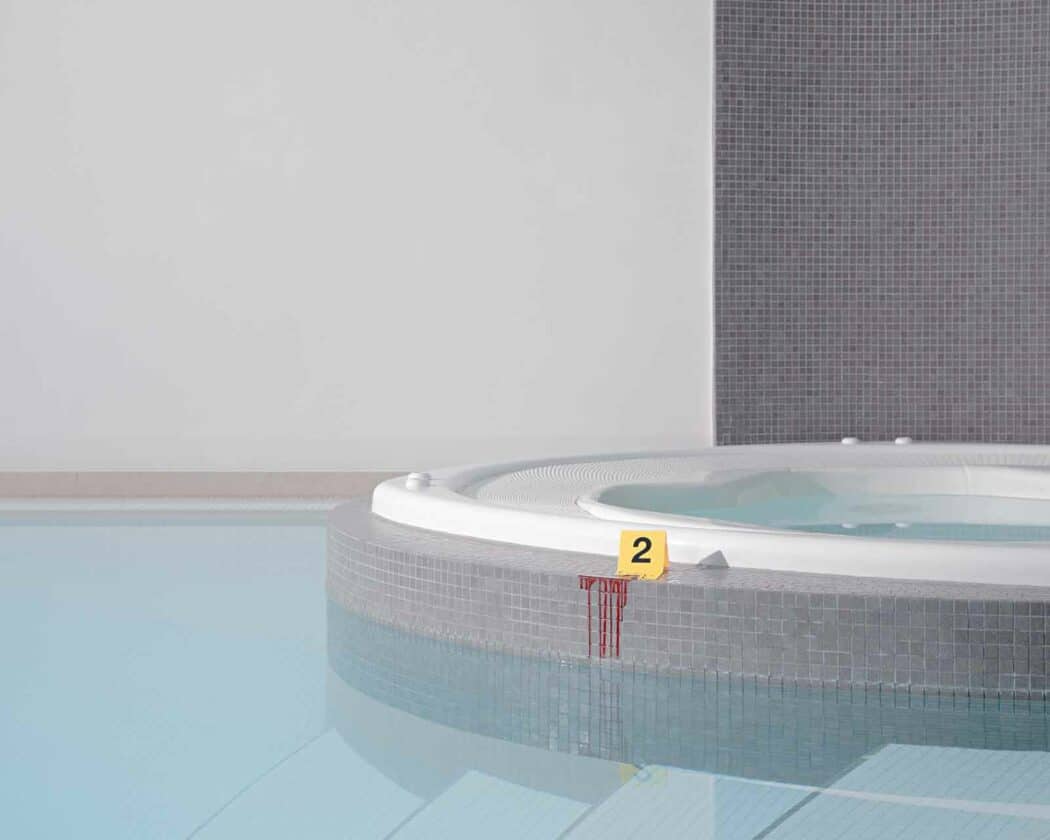 Photo: Jan A. Staiger and Malte Uchtmann
Photo: Jan A. Staiger and Malte Uchtmann
10. Real scientific training
In addition to practical seminars, we provide our students with a comprehensive understanding of photographic theory, media ethics and photographic history. In numerous courses, they learn how to work scientifically. In addition, our degree program offers an important space for an open exchange on questions of journalistic and ethical approaches. In this context, the Hanover University of Applied Sciences and Arts also promotes research and discourse on visual journalism. In this context, the course also regularly organizes symposia at which experts discuss current issues in the industry.
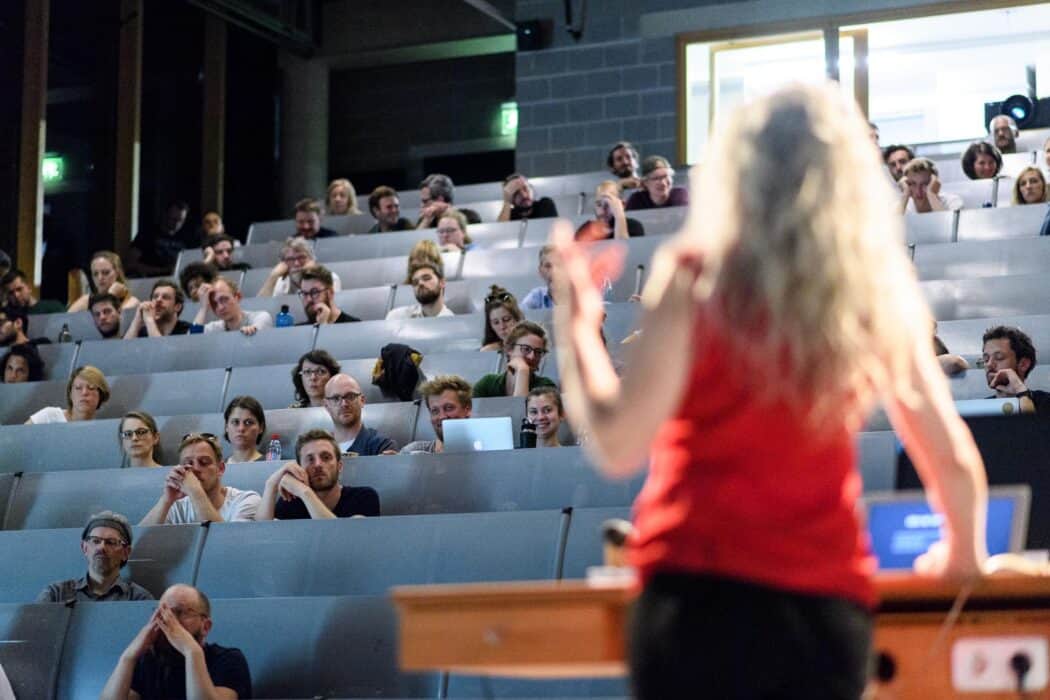 Germany (GER), Lower Saxony, Hanover, 18.05.2017 – Symposium Images in Conflict
Visitors listen to Emma Daly, Communications Director at Human Rights Watch, during a presentation.
PHOTO: MARVIN IBO GÜNGÖR / HS HANNOVER
Germany (GER), Lower Saxony, Hanover, 18.05.2017 – Symposium Images in Conflict
Visitors listen to Emma Daly, Communications Director at Human Rights Watch, during a presentation.
PHOTO: MARVIN IBO GÜNGÖR / HS HANNOVER
With this diverse and future-oriented range of courses, our degree program prepares you ideally for a successful career in the media. If you are interested in socially relevant topics, visual storytelling and journalistic research, Hannover University of Applied Sciences and Arts is the perfect choice.
You can find a detailed schedule of the application process on our website under “Apply”. In addition to a short letter of motivation, you will need three photo spreads or two photo spreads and a video for the digital application portfolio. We have put together a separate article on how to create a good photo series. But you should definitely also come to one of our free portfolio consultations. It makes sense to look for journalistic and documentary projects for your portfolio. This way you can show that you are interested in the course of study. Don’t make it too complicated. Maybe there is someone in your circle of friends with an interesting hobby or profession? This often lends itself to a good story.
For the motivation letter, the following questions will help you: Why do you want to study Visual Journalism and Documentary Photography? With what qualities and skills can you yourself enrich the study program? And what would you like to achieve in this profession later on?
We look forward to accompanying you on your path to becoming a successful media professional and shaping the future of visual journalism together!
Your contact partners will be happy to assist you with your personal concerns. However, due to the large number of enquiries, we ask you to first check our FAQ to see if your question may already have been answered.
Dean of Studies, Design and Media department
Programme representative
Application and admission procedure
Hochschule Hannover
Faculty III – Media, Information and Design
Expo Plaza 2
D-30539 Hanover

